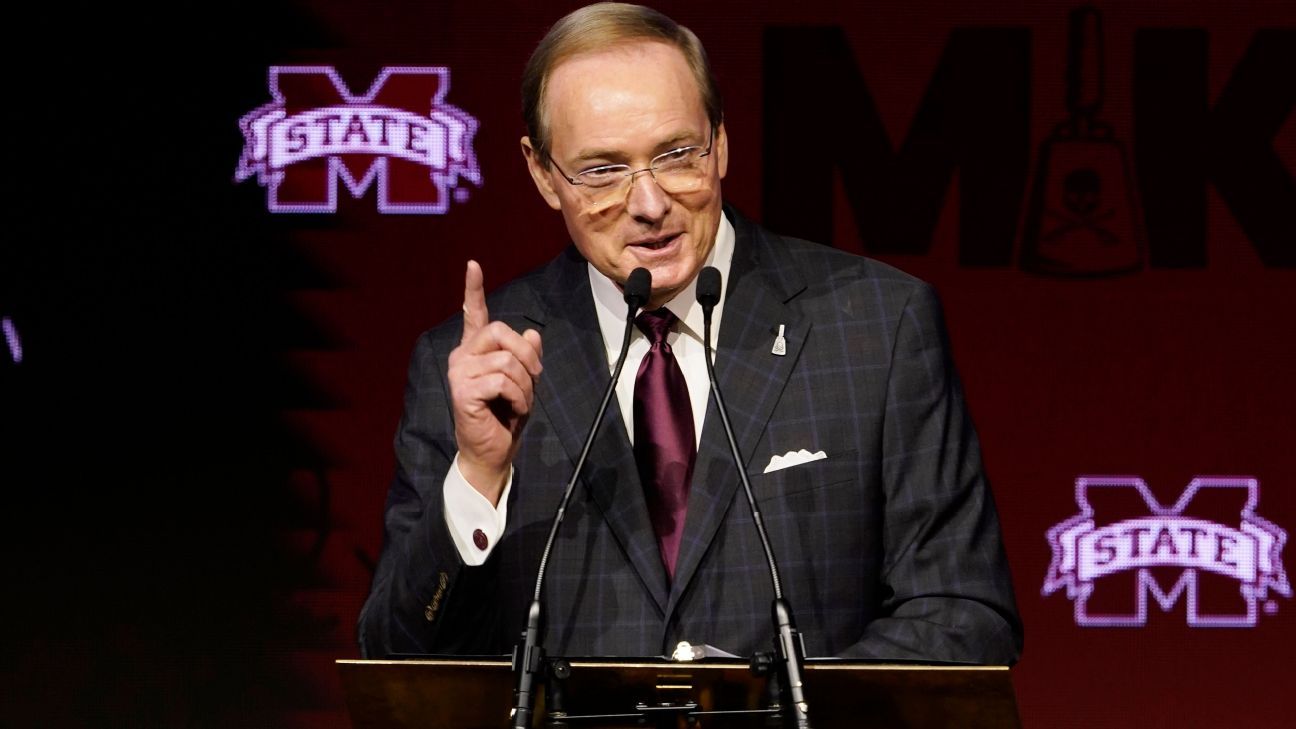STARKVILLE, Miss. — As the College Football Playoff faces a critical deadline, a key figure in the discussions has revealed that the Southeastern Conference favors eliminating automatic bids in future playoff formats, potentially reshaping how teams qualify for the national championship tournament.
Mississippi State University president Mark Keenum, who serves as chair of the College Football Playoff board of managers, expressed this stance during an appearance on ESPN's 'The Paul Finebaum Show' on Friday. The comments come just weeks before the Dec. 1 deadline for deciding on possible changes to the playoff structure starting in 2026.
Keenum, speaking live from the Mississippi State campus ahead of Saturday's game against Georgia, was direct about his views. 'I'm not a big fan of automatic qualifiers,' he said. 'I think the best teams ought to play in our nation's national tournament to determine who our national champion in college football is going to be and not have automatic bids.'
He emphasized that this position aligns with the broader sentiment within the SEC. 'That's the position of the Southeastern Conference — presidents and chancellors, our commissioner, and probably most of the conferences that are part of the CFP,' Keenum added.
The debate over automatic bids has intensified as conferences negotiate the future of the playoff, which expanded to 12 teams for the current season. Under the existing format, the playoff includes the five highest-ranked conference champions and seven at-large selections, granting automatic entry to those top champions regardless of their overall ranking.
Keenum's remarks highlight a divide among the major conferences, particularly between the SEC and the Big Ten. The Big Ten has consistently advocated for maintaining automatic qualifiers, according to reports from ESPN. In contrast, following the SEC's spring meetings in May, a proposed 16-team model gained traction among most Football Bowl Subdivision conferences, featuring the top five conference champions and 11 at-large teams — but without guaranteed spots for specific leagues.
That model reportedly received support from every FBS conference except the Big Ten, which has remained firm in its preference for automatics. ESPN sources indicate that the Big Ten and SEC hold significant sway over any format changes, as they were granted substantial control during previous contract negotiations.
In August, ESPN reported on the Big Ten's interest in an even larger expansion, potentially to 24 or 28 teams, which could eliminate conference championship games altogether. Under one discussed scenario, the Big Ten and SEC would each receive seven guaranteed spots, with five each for the ACC and Big 12, two for leagues outside the Power Four, and two at-large berths.
Keenum acknowledged the ongoing negotiations but expressed doubt about reaching an agreement soon. 'We're still negotiating,' he told Finebaum. 'We have to make a decision before the end of this month if we're going to expand to 16 next year. ... I'll be honest, I'm not very optimistic that we'll get to that, but we'll keep working on it.'
Multiple sources within the CFP have been skeptical for months that Sankey and Petitti would agree on a format — which means the most likely outcome would be for the current, 12-team format to remain in place for at least another season.
SEC Commissioner Greg Sankey and Big Ten Commissioner Tony Petitti have yet to find common ground, according to ESPN. This impasse could delay any expansion, leaving the 12-team setup intact for 2026 and beyond if no consensus is reached by the deadline.
To provide context, the College Football Playoff was introduced in 2014 as a four-team event, replacing the Bowl Championship Series. It aimed to create a more inclusive path to the national title, but criticisms of bias toward certain conferences led to the recent expansion to 12 teams, which debuted this year. The playoff's management involves a board of managers comprising university presidents and chancellors from the 10 FBS conferences and Notre Dame.
Keenum's role as chair places him at the center of these deliberations. As president of Mississippi State since 2009, he has been involved in athletic governance, including serving on the CFP board. His comments on Finebaum's show, broadcast from Davis Wade Stadium in Starkville, underscore the SEC's push for a merit-based system that prioritizes the strongest teams overall, rather than guaranteeing spots based on conference titles.
Critics of automatic bids argue that they could allow weaker teams to enter the playoff at the expense of stronger at-large candidates. Supporters, like those in the Big Ten, contend that automatics ensure representation and reward conference performance. ESPN reports suggest that without agreement between the two powerhouse conferences, broader changes are unlikely.
Looking ahead, if no new format is adopted by Dec. 1, the current structure will persist, potentially through the end of the existing media rights deal with ESPN, which runs until 2031. However, discussions could continue, with possibilities for mid-contract adjustments. Keenum's pessimism reflects the challenges in balancing competing interests among conferences vying for playoff revenue and prestige, which totaled over $460 million distributed last year.
The implications extend beyond the field, affecting recruiting, television contracts, and fan engagement. For instance, eliminating automatics could favor conferences like the SEC, known for its depth of talent, while disadvantaging smaller leagues. As negotiations press on, stakeholders will watch closely for any breakthroughs before the deadline.
In the meantime, the focus remains on the inaugural 12-team playoff, set to conclude with the national championship game on Jan. 20, 2025, at Mercedes-Benz Stadium in Atlanta. Teams like Georgia, which played Mississippi State on Saturday, are among those positioning for spots in this year's field.
Keenum's candid remarks have sparked renewed debate in college football circles, highlighting the tension between tradition and evolution in the sport's postseason. Whether the SEC's preference prevails could define the playoff's future for years to come.
